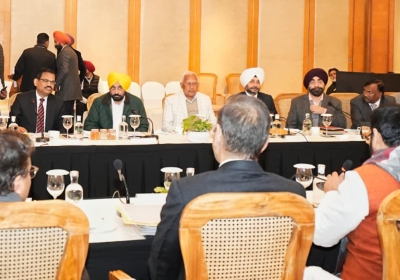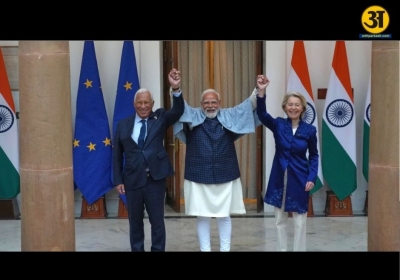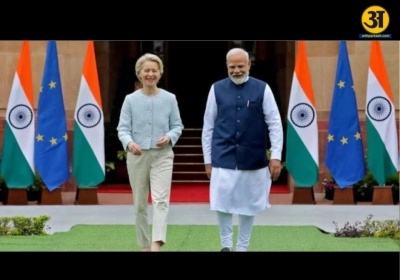
Millionaire mocked scammer who tried to impersonate him on WhatsApp
Indian millionaire gets WhatsApp message from scammer impersonating him, calls out casual tactics
In a world where online scams are common, a new one has left people surprised and amused. Indian billionaire and Paytm founder Vijay Shekhar Sharma recently became the target of a scammer who tried to impersonate — none other than Sharma himself. Yes, you read that right! A person messaged Sharma on WhatsApp, pretending to be him and asking, “Are you in office?”
The twist in the tale? Vijay Shekhar Sharma himself received the message. The tech entrepreneur took to social media platform X (formerly Twitter) to share this bizarre moment. Posting a screenshot of the message, he wrote, “Impersonating myself to me.”
This post immediately caught the attention of the internet and sparked a wave of laughter and witty responses. Many users found the idea hilarious and started quoting memes, jokes, and comments about the audacity of such scams. One person commented, “Impersonating ka tarika thoda kesual hai,” meaning the scammer’s way of impersonating was too casual. Another joked, “Bas itna confidence chahiye,” admiring the scammer's boldness.
A few others used the opportunity to link it to Bollywood humor. “Vijay calling Vijay,” someone wrote, referring to the film Karthik Calling Karthik, where the lead character gets calls from himself.
Despite the laughs, many users also pointed out the seriousness of impersonation scams. One comment read, “Jokes apart, this is a serious concern and many people are fooled by it.” This is true — scams like these can trick people into sharing personal or financial information.
This is not the first time a scammer has tried to fool someone using a fake identity. But in this case, the person tried their luck with someone very tech-savvy and known for running one of India’s biggest digital payment platforms. The irony was just too much to ignore.
How to stay safe from WhatsApp scams
Although this incident was funny, online scams are a real danger. Here are a few tips WhatsApp shares to help protect users:
-
Pause and Think
If you receive a message from someone asking for personal information or money, take a moment to think. Scammers often try to make people act quickly by creating fake emergencies. -
Check Their Behaviour
If the person messaging you seems pushy, says something urgent, or pretends to be someone you know but uses a new number — be careful. Don’t share any passwords, OTPs, or banking details. -
Stop the Conversation
If you feel unsure about the person’s identity, stop chatting. WhatsApp advises: “Hang up a call or stop replying. If you can’t verify the contact’s identity, do not share any personal or financial information.”
ALSO READ: Adani Airport Holdings ends partnership with DragonPass, confirms exit from deal
ALSO READ: Dassault Aviation stock surges after PM Modi's 'Lakshman Rekha' warning to Pakistan
-
Block and Report
If you suspect a scam, block and report the number right away. You can also visit WhatsApp’s privacy settings to make your profile details (like profile picture or last seen) visible only to your contacts. This limits how much information scammers can see. -
Turn On Two-Step Verification
Always use two-step verification in WhatsApp. This adds an extra layer of security by asking for a PIN when registering your number on a new device.
Online frauds are becoming smarter, and even CEOs like Vijay Shekhar Sharma can be targeted. That’s why it’s important to stay alert.
As this funny incident shows, no one is completely safe — not even from themselves! But with smart thinking, security features, and a bit of humour, you can stay one step ahead of the scammers.





